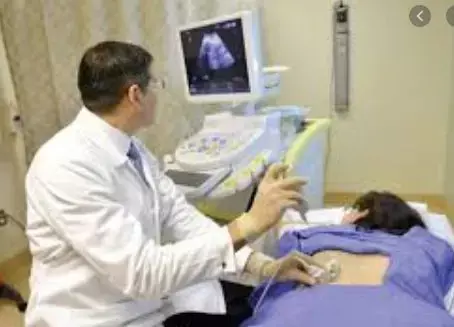- Home
- Medical news & Guidelines
- Anesthesiology
- Cardiology and CTVS
- Critical Care
- Dentistry
- Dermatology
- Diabetes and Endocrinology
- ENT
- Gastroenterology
- Medicine
- Nephrology
- Neurology
- Obstretics-Gynaecology
- Oncology
- Ophthalmology
- Orthopaedics
- Pediatrics-Neonatology
- Psychiatry
- Pulmonology
- Radiology
- Surgery
- Urology
- Laboratory Medicine
- Diet
- Nursing
- Paramedical
- Physiotherapy
- Health news
- Fact Check
- Bone Health Fact Check
- Brain Health Fact Check
- Cancer Related Fact Check
- Child Care Fact Check
- Dental and oral health fact check
- Diabetes and metabolic health fact check
- Diet and Nutrition Fact Check
- Eye and ENT Care Fact Check
- Fitness fact check
- Gut health fact check
- Heart health fact check
- Kidney health fact check
- Medical education fact check
- Men's health fact check
- Respiratory fact check
- Skin and hair care fact check
- Vaccine and Immunization fact check
- Women's health fact check
- AYUSH
- State News
- Andaman and Nicobar Islands
- Andhra Pradesh
- Arunachal Pradesh
- Assam
- Bihar
- Chandigarh
- Chattisgarh
- Dadra and Nagar Haveli
- Daman and Diu
- Delhi
- Goa
- Gujarat
- Haryana
- Himachal Pradesh
- Jammu & Kashmir
- Jharkhand
- Karnataka
- Kerala
- Ladakh
- Lakshadweep
- Madhya Pradesh
- Maharashtra
- Manipur
- Meghalaya
- Mizoram
- Nagaland
- Odisha
- Puducherry
- Punjab
- Rajasthan
- Sikkim
- Tamil Nadu
- Telangana
- Tripura
- Uttar Pradesh
- Uttrakhand
- West Bengal
- Medical Education
- Industry
Donor Kidney Biopsies not useful in Transplant Outcome Prediction; finds study

Many kidneys donated for transplant in the United States are discarded because of abnormal histology. Whether histology adds incremental value beyond usual donor attributes in assessing allograft quality is still unknown. It is also unknown whether preimplantation kidney biopsies that are routinely performed in the United States add incremental value beyond usual donor attributes in predicting allograft survival.
In a recent study published in the Journal of American Society of Nephrology ,The investigators analyzed detailed data from transplant centers in France and Belgium, where pretransplant biopsies are prospectively performed as standard practice but do not guide decision making for organ allocation.
This population-based study included patients who received a deceased donor kidney that had been biopsied before implantation according to a prespecified protocol in France and Belgium, where preimplantation biopsy findings are generally not used for decision making in the allocation process. We also studied kidneys that had been acquired from deceased United States donors for transplantation that were biopsied during allocation and discarded because of low organ quality. Using donor and recipient characteristics, we fit multivariable Cox models for death-censored graft failure and examined whether predictive accuracy (C index) improved after adding donor histology. We matched the discarded United States kidneys to similar kidneys transplanted in Europe and calculated predicted allograft survival.
Data analysis revealed the following facts.
- In the development cohort of 1629 kidney recipients at two French centers, adding donor histology to the model did not significantly improve prediction of long-term allograft failure.
- Analyses using an external validation cohort from two Belgian centers confirmed the lack of improved accuracy from adding histology.
- About 45% of 1103 United States kidneys discarded because of histologic findings could be accurately matched to very similar kidneys that had been transplanted in France; these discarded kidneys would be expected to have allograft survival of 93.1% at 1 year, 80.7% at 5 years, and 68.9% at 10 years.
They found that transplant histology did not improve the prediction of allograft failure beyond a robust baseline set of donor and recipient characteristics. They also studied donor kidneys from deceased United States donors—specifically, organs discarded because of abnormal histology—and matched them with similar kidneys transplanted in Europe. The matched kidneys had acceptable allograft survival, illustrating lost transplant opportunities in the United States.
For full article follow the link https://doi.org/10.1681/ASN.2020040464:
Dr Satabdi Saha (BDS, MDS) is a practicing pediatric dentist with a keen interest in new medical researches and updates. She has completed her BDS from North Bengal Dental College ,Darjeeling. Then she went on to secure an ALL INDIA NEET PG rank and completed her MDS from the first dental college in the country – Dr R. Ahmed Dental College and Hospital. She is currently attached to The Marwari Relief Society Hospital as a consultant along with private practice of 2 years. She has published scientific papers in national and international journals. Her strong passion of sharing knowledge with the medical fraternity has motivated her to be a part of Medical Dialogues.
Dr Kamal Kant Kohli-MBBS, DTCD- a chest specialist with more than 30 years of practice and a flair for writing clinical articles, Dr Kamal Kant Kohli joined Medical Dialogues as a Chief Editor of Medical News. Besides writing articles, as an editor, he proofreads and verifies all the medical content published on Medical Dialogues including those coming from journals, studies,medical conferences,guidelines etc. Email: drkohli@medicaldialogues.in. Contact no. 011-43720751


